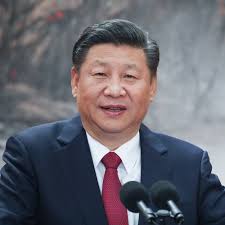 By Staff Writer
By Staff Writer
16:09:2021
Recent decisions by the Chinese Communist Party regulating the behaviours of celebrities, time spent on online games and even after school tutoring have led to questions around the intentions and objectives of the Chinese Communist Party (CPC) and its head, President Xi Jinping.
China has sought to limit so-called ‘effeminate’ behaviours, curtailed reality television shows, and even suppress celebrity ratings and rankings. Further, opposition politicians within the CPC have been arrested, businessmen such as Alibaba’s Jack Ma detained and disappeared, and President Xi’s Thought on Socialism with Chinese characteristics incorporated into the CPC’s constitution.
President Xi will likely also maintain his position following the next CPC congress in 2012, having abolished term limits in 2018. These measures are all in response to the increasing access to information, growing education and standards and economic power of ordinary Chinese, and the CPC and President Xi’s attempt to ensure that the party remains central to the state and people.
Speaking to Radio Islam International, Elliott Zaagman, host and producer of the New York-based China Tech Investor podcast, agreed that this was a symptom of the country’s totalitarian system, argued that it was substantively different to Mao Zedong’s ‘Cultural Revolution.’ He compared Mao’s revolution, which sought to overthrow the country’s institution, with Xi, who used the institutions to regain society.
“Mao Zedong was a much more chaotic revolutionary leader. He used a youth movement to overthrow uh institutions in society. In this case, Xi Jinping is doing almost the exact opposite. He has control over the existing institutions of society and is using them to implement and take very tight control over the country.”
Zaagman also pointed to the fact that although opposition to Xi was high, many supported his actions. About the curtailment of private after-school tutoring, he argued, “Some parents are, welcoming them quite a bit because, there is a tremendous amount of pressure on a lot of them to pay for their kids to have all these extra classes, And the recent regulations have gotten rid of a lot of these for-profit tutoring companies.”
Further, he pointed out the sometimes inaccurate information provided; for example, the 3-hour video game limit was only for online gaming, not normal games played on consul game sets, which the CPC cannot control access.
He argued that this was bad for the Chinese economy, especially in light of the uncertainty caused. Further, he pointed out that these moves will impact many wealthy businesses and those who may deem the measures’ socialist’. They may begin to emigrate from the country, with Singapore being a possible destination. However, he cautioned that the strength of the political system, coupled with Xi’s remaining popularity, means that these will likely not force the CPC to change tact.
Beijing has grown increasingly nationalistic and intolerant over the past five years. It has intensified its claims over the South China Sea, placing it into competition with the Philippines. Further, it has implemented what Human Rights Institutions have labelled genocidal actions and crimes against humanity toward its minority Uighur population in Xinjiang.
Millions of Uighurs have been placed in so-called “re-education camps”, which have seen them tortured, sexually abused and even sterilised, all in the name of maintaining purity and centralised state control. Countries such as the US, Turkey, and the UK have opposed these measures; however, China’s political and economic might have meant that little action has been taken to date.
[LISTEN] to the podcast here







0 Comments